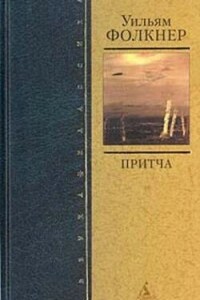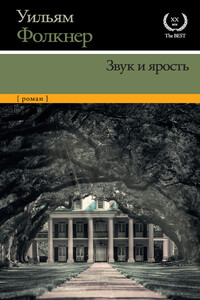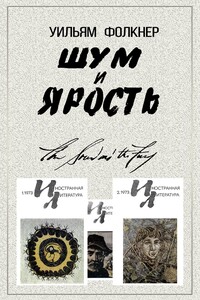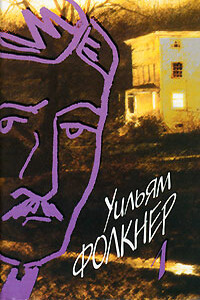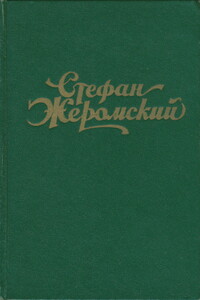|
| It's going to turn and destroy us all some day, whether our name happens to be Sutpen or Coldfield or not." | В один прекрасный день она возмутится и уничтожит всех нас, как бы нас ни звали -Сатпены, Колдфилды или как-то еще иначе. |
| ' Ah,' Mr Compson said. | - Да, - отозвался мистер Компсон. |
| 'Years ago we in the South made our women into ladies. | - Много лет назад мы, южане, превратили наших женщин в благородных дам. |
| Then the War came and made the ladies into ghosts. So what else can we do, being gentlemen, but listen to them being ghosts?" | Потом началась Война и превратила этих дам в призраки. |
| Then he said, | Так теперь, коль скоро уж мы джентльмены, что еще остается нам делать, как не слушать их, коль скоро они теперь призраки? |
| 'Do you want to know the real reason why she chose you?" | - Потом он добавил: - Ты хочешь знать истинную причину, почему она выбрала именно тебя? |
| They were sitting on the gallery after supper, waiting for the time Miss Coldfield had set for Quentin to call for her. | - После ужина они сидели на веранде, ожидая часа, назначенного мисс Колдфилд для его приезда. |
| 'It's because she will need someone to go with her-a man, a gentleman, yet one still young enough to do what she wants, do it the way she wants it done. | - Ей просто нужно, чтобы кто-нибудь поехал с ней туда - какой-нибудь мужчина, джентльмен, притом достаточно молодой, чтобы сделать то, чего она хочет, и именно так, как она хочет. |
| And she chose you because your grandfather was the nearest thing to a friend Sutpen ever had in this county, and she probably believes that Sutpen may have told your grandfather something about himself and her, about that engagement which did not engage, that troth which failed to plight. | А тебя она выбрала потому, что никого ближе твоего деда у Сатпена в наших краях никогда не было, и она, наверно, думает, что Сатпен мог что-нибудь рассказать твоему деду о себе и о ней -об обручении, которое не состоялось, и о свадьбе, которая не сладилась. |
| Might even have told your grandfather the reason why at the last she refused to marry him. -And that your grandfather might have told me and I might have told you. | Мог даже объяснить твоему деду, почему она в конце концов отказалась за него выйти. И что твой дед мог рассказать это мне, а я - тебе. |
| And so, in a sense, the affair, no matter what happens out there tonight, will still be in the family; the skeleton (if it be a skeleton) still in the closet. | И потому, что бы там сегодня вечером ни случилось, семейная тайна, в некотором смысле, так и останется в семье, а скелет (если это действительно был скелет) - в чулане. |
| She may believe that if it hadn't been for your grandfather's friendship, Sutpen could never have got a foothold here, and that if he had not got that foothold, he could not have married Ellen. | Возможно, она думает, что, если б не дружба твоего деда, Сатпен никогда бы не смог здесь обосноваться, а если б он не смог здесь обосноваться, ему не удалось бы жениться на Эллен. |
| So maybe she considers you partly responsible through heredity for what happened to her and her family through him." | Поэтому не исключено, что она считает тебя отчасти ответственным - по наследству - за то, что случилось из-за него с нею и со всей ее семьей.) |
| Whatever her reason for choosing him, whether it was that or not, the getting to it, Quentin thought, was taking a long time. | Какова бы ни была причина, по которой выбор пал на него, - именно эта или какая другая, подумал Квентин, докапываться до нее придется очень долго. |
| Meanwhile, as though in inverse ratio to the vanishing voice, the invoked ghost of the man whom she could neither forgive nor revenge herself upon began to assume a quality almost of solidity, permanence. | Между тем, словно в обратной пропорции к исчезающему голосу, вызванный к жизни дух человека, которому она отказала в прощенье и не могла отомстить, начал постепенно как бы обретать некую прочность и неизменность. |
| Itself circumambient and enclosed by its effluvium of hell, its aura of unregeneration, it mused (mused, thought, seemed to possess sentience, as if, though dispossessed of the peace-who was impervious anyhow to fatigue-which she declined to give it, it was still irrevocably outside the scope of her hurt or harm) with that quality peaceful and now harmless and not even very attentive-the ogre-shape which, as Miss Coldfield's voice went on, resolved out of itself before Quentin's eyes the two half-ogre children, the three of them forming a shadowy background for the fourth one. |

